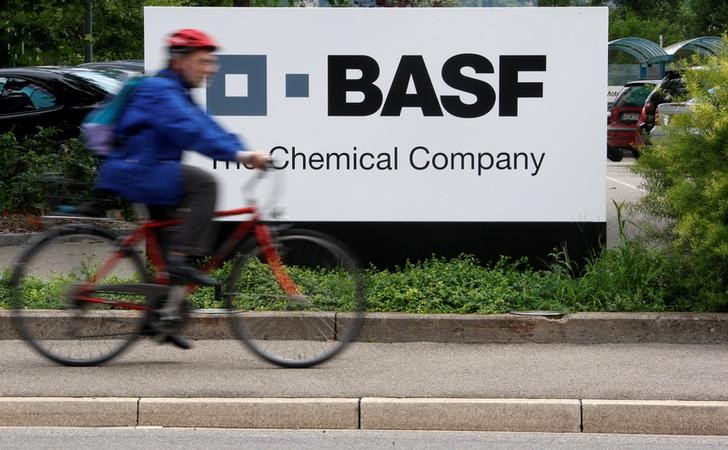German construction sector still in recession, civil engineering only bright spot
Investing.com -- Morgan Stanley (NYSE:MS) upgraded BASF (ETR:BASFN) to Overweight from Equal-weight, citing a series of near- and medium-term catalysts that could help the German chemicals group move past a challenging earnings backdrop.
BASF shares climbed 2.4% in Frankfurt by 12:23 GMT.
The price target was also raised to €54 from €46, based on a blended valuation approach that reflects growing confidence in divestiture and free cash flow improvement.
“We think silver-linings are starting to emerge in addition to the following set of catalysts,” analyst Thomas P. Wrigglesworth wrote, highlighting three “stepping stones”: the potential sale of BASF’s Coatings business, improved dividend coverage supported by rising free cash flow, and a more realistic earnings base for 2026 following a reset.
The planned Coatings divestment is viewed as a way to unlock value and reduce debt, and could help bring BASF’s sum-of-the-parts valuation of €64 per share into sharper investor focus. Morgan Stanley also notes that a potential initial public offering (IPO) of Ag Solutions in 2027 could be pulled forward.
On cash generation, analysts expect a turning point as the ramp-up of BASF’s new Verbund (VIE:VERB) site in Zhanjiang lowers capex and working capital burdens, leading to stronger free cash flow in 2026. That, in turn, should ease concerns around the dividend, currently yielding 5.2%.
“BASF is not yet out of the earnings downgrade cycle for ’25 and ’26,” Wrigglesworth said, “but we think that a number of elements are coming together to allow the market to look through the ’25 challenges.”
The third catalyst, according to Morgan Stanley, refers to a reset in BASF’s earnings base, with the 2025 EBITDA run-rate now seen at €7.4 billion—below consensus but more aligned with current market conditions.
A recent spike in TDI prices, driven by supply disruptions, provides a short-term boost and underscores BASF’s sensitivity to tightening global supply.
The bank sees additional upside from potential Chinese chemical supply rationalization and demand normalization if tariff uncertainty fades.
But at the same time, it also cautioned that U.S. macro risks, including consumer weakness and inflation pressures, could remain headwinds.
Nonetheless, Morgan Stanley believes the current valuation reflects much of the near-term uncertainty and said negative macro newsflow in late summer “should be seen as a buying opportunity on BASF rather than a selling.”
